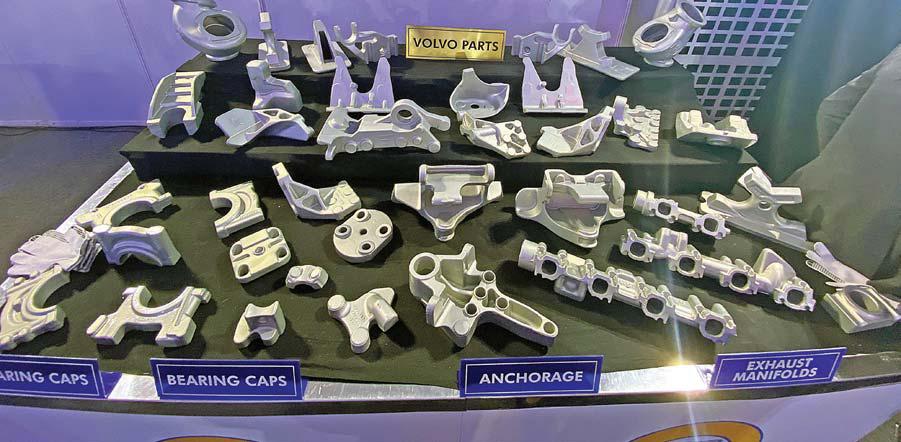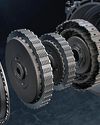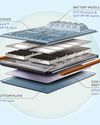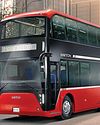
One major lesson that the pandemic taught the automotive OEMs and suppliers is to be ready for whatever may come. Keeping this in mind, many companies have brainstormed on de-risking strategies in order to make sure their operations go smoothly even if one part of the whole system comes to a complete halt. One among those companies is the automotive braking systems supplier, Brakes India.
Sriram Viji, Managing Director told Autocar Professional said that the company had kicked off its de-risking strategy even before Covid hit. “Due to the scale of the Indian economy and how things were going, customers started asking us for de-risking opportunities way back in 2018-19. This was when the market was at peak. While we were largely a Tamil Nadu-based company for a long time, we decided to enhance our footprint by investing in Gujarat in 2016, and two years later in Jamshedpur,” he says.
As Viji puts it, braking systems for commercial vehicles were earlier entirely made from its plant at Sholingur in Ranipet district. Now, it has moved 30-40 percent of this capacity to Jamshedpur. Similarly, Brakes India would manufacture front and caliper brakes almost entirely at the plant in Polambakkam near Chennai. Now, about 40 percent of that has been moved to Gujarat. “We started to look at places to de-risk from multiple angles. Be it logistics, manpower, political situation etc., whatever it is, we needed to have checks and balances, especially for our customer requirements,” he says. “Such moves have helped us, even during the pandemic too,” he explains.
Investments ahead and EVs
Denne historien er fra 15th July 2022-utgaven av Autocar Professional.
Start din 7-dagers gratis prøveperiode på Magzter GOLD for å få tilgang til tusenvis av utvalgte premiumhistorier og 9000+ magasiner og aviser.
Allerede abonnent ? Logg på
Denne historien er fra 15th July 2022-utgaven av Autocar Professional.
Start din 7-dagers gratis prøveperiode på Magzter GOLD for å få tilgang til tusenvis av utvalgte premiumhistorier og 9000+ magasiner og aviser.
Allerede abonnent? Logg på

Spain's Fersa Group invests in India-based Delux Bearings
Besides theRs100 croreinvestment, the Indian company gets access toadvanced technologies and bearings with arange of applications that willhelpinits global growth strategy, writes Manobhava Baruah.

Tata Autocomp to open compact dual-clutch transmission plant
Amidthe country’s growing need for personal mobility with easy manoeuvrability, comes the demand for vehicles with automatic transmission. Tata AutoCompisready tomovein writes Shruti Mishra.

Pankaj Munjal-backed Hero Motors raises equity from GEF Cap
The company willinvest Rs1,500 crore over thenextthree years andit expects 60 percent ofits turnover to come fromelectric vehicle parts. Itaims to becomea Global EV Solutions Company from India

New age thermoplastics for next-generation EV batteries
Saudi-based global materials major SABIChas developed cutting edgein fire-resistant polymers and flame-retardant materials that comply with various EV battery safety standards across the world.

Switch Mobility to meet growing e-bus demand with fresh capex
Oncourse for abillion-dollar business, the company is exploringa possibility of operating satellite factories across the country to serve different geographies, write ShahkarAbidi and Ketan Thakkar.

Kia India to invest Rs 2,000 crore in EVS, to introduce new e-RV in 2025
New investmentto drive R&D, infrastructure development and manufacturing capabilities. The company willlocally produce EVsin India with possibility of exports as well, writes Mayank Dhingra.

"The government has given enough time for indigenisation but the industry has not taken it seriously"
Amitabh Saran, Founder and CEO, Altigreen, shares his views on problems inthe EV industry and battery localisation solutions with Amit Vijay M.

TATA MOTORS SEES ONE INTWO CARS SOLDAS EVS BY 2030
The company aims to offer wider choices withnew EVs that may straddle a pricebracket of Rs20to 40lakhinthe coming years, writes Ketan Thakkar.

MG Motor India in expansion drive, to invest $100 million
The investment willbe usedtoramp up existing production capacity from1.2to1.4-15lakh units per annum atthe automaker's Halol plantin Gujarat, writes Ketan Thakkar.

"Technology and its multiplier effect are driving business transformations and customer experiences"
Technical Centre India is one of Continental’s largest research and development centres in the world, andasa Centre of Competence’ it also develops customised products for the BRIC countries.